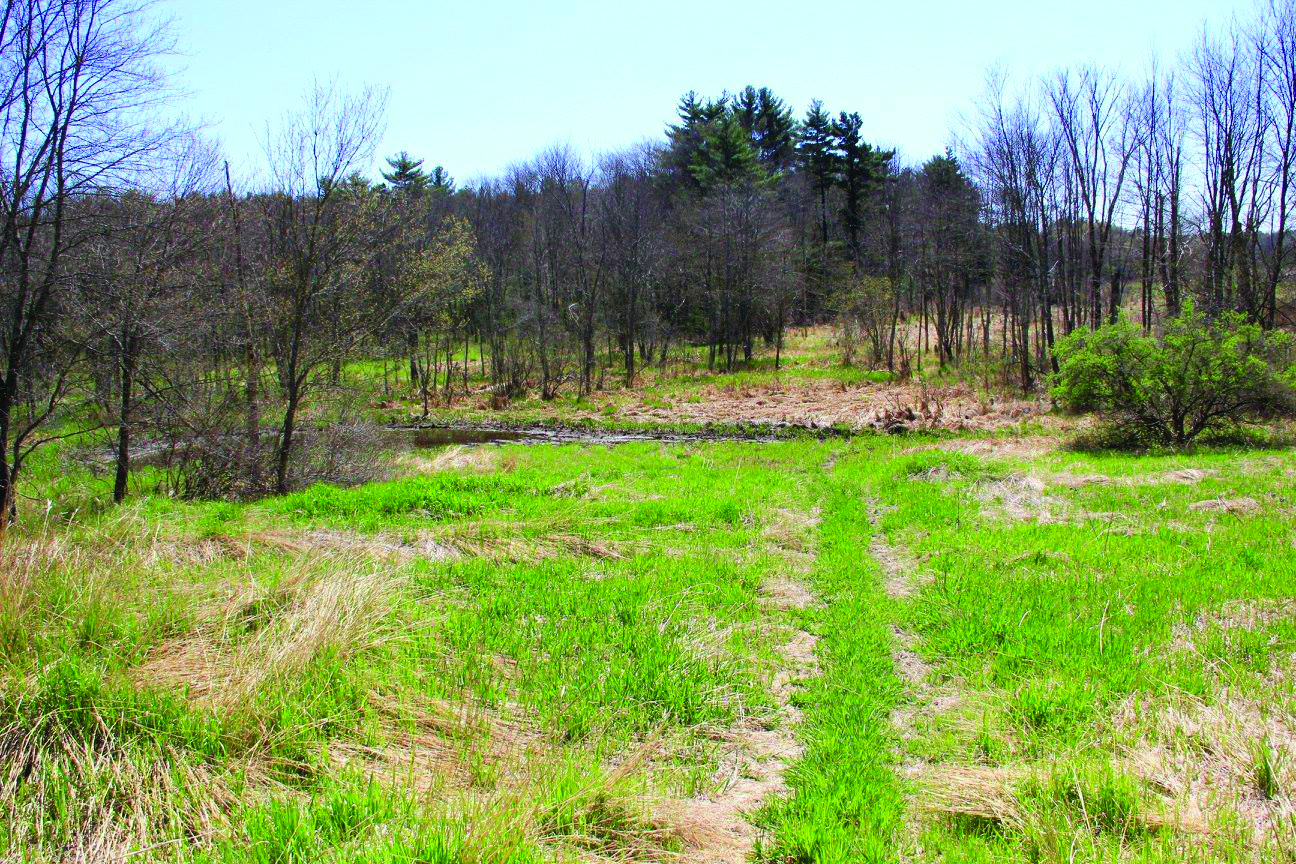The local grassroots group, the Charles River Meadowlands Initiative, which has received guidance and support from the Metacomet Land Trust (MLT), continues its meetings into 2017 to discuss the 500-acre parcel of land protected by the Army Corps of Engineers as part of the Charles River Valley Flood Control Project. The group hopes to improve access to and passive recreation of the land, which sits in Franklin, Medway and Bellingham. The group will meet the first Tuesday nights of the month, at 6:30 p.m. in the Dean Room of the First Universalist Society, 262 Chestnut St, Franklin, MA. The next meeting will take place on February 7th (followed by March 7th, April 4th and May 2nd).
The outgrowth of the group has been a draft of the Charles River Meadowlands Plan – a document influenced by meetings and conversations with federal, state, and local officials as well as public comments input. Since this is still a draft, the group welcomes comments and ideas. You can review the plan at https://www.charlesrivermeadowlands.org/. Based on comments and feedback, the initiative will be sharing the document widely and using it as a template for action starting this month.
“The document that’s on the website is the outgrowth of all the formal conversations we’ve had from everyone from the Army Corps of Engineers to the people who came to our workshops,” says Alan Earls, who has spearheaded the effort to preserve this open space for passive public recreation. Earls says he is encouraged that “we have not heard anyone say anything negative about the idea. People are excited about it.”
The challenges in the process of making the land open for use, says Earls, is “what model to adhere to.” The land is located and overseen by three towns, and there is federal jurisdiction as well. There’s also, says Earls, some state involvement, as the Department of Fish and Game.
“I think we started with assumption that the federal or state role might be great place to start, and in fact, we were able to get tremendous support from Reps. Jeffrey Roy (D-Franklin), Kevin Kuros (R-Uxbridge) and John Fernandes (D-Milford) to get a $25,000 line item passed,” says Earls.
What the group has learned, however, is that while the federal government does not oppose the protection of an opening of the land for public use, their role is to maintain the area in terms of flood control. “They have no objections, and they sounded enthusiastic, but they’re not going to get the ball rolling,” says Earls.
Similarly, he says, the “fish and game folks’ mandate is to make sure people follow the fish and game rules. The Mass. Department of Conservation and Recreation, they’re strapped for cash and while supportive, they’re not enthusiastic about jumping in on a new project. That puts it back in the lap of the towns, which already acquire and manage open space.”
The Charles River Meadowlands Initiative, therefore, will work on starting there. The information the group has gathered suggests that the three towns of Bellingham, Franklin and Medway could “come up with some kind of a committee that would be formally structured like any government committee would. The towns can work together,” says Earls, something they have done in the past. “Bellingham and Franklin created open space committees in the past, it just takes a bit of initiative to make it happen. The regional approach is oftentimes more efficient and more effective at a local level. That, in turn is more likely to produce activity from state players, who would be more likely to then come on board and commit resources.”
Earls says that together, the towns could clarify to all parties what the rules of access and land use are.
“It’s not really complicated,” says Earls, who says the group plans to continue conversations with town planners, and that some of the process may just be the towns’ giving formal permission to various departments to “make something happen. It’s what local government does anyway. We are not creating anything new, just dusting off what has been done in the past.”
In the meantime, says Earls, his group will “continue to hold meetings, answer questions, conduct trail walks and continue to bang the drum and get people excited.”
According to the the draft document at www.charlesrivermeadlowlands.org, “While by law nothing can be done to these lands which would alter their ability to serve a flood control function and nothing should be done to them that would lessen their ability to serve as wildlife habitat, much can be done to make them available for passive recreation: walking, bicycling, cross-country skiing, canoeing, fishing, etc. Increased access to these kinds of recreational opportunities can have a positive economic impact on the region – raising property values, and encouraging people to spend time (and money) in their own communities.”
Says Earls, “2016 was our year of study; 2017 will be our year of action.”

Issue Date:
February, 2017
Article Body:
